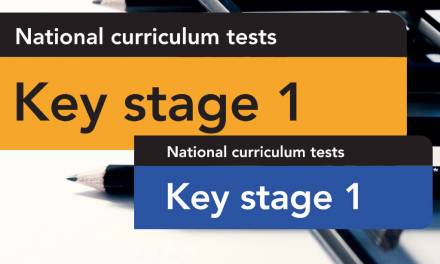At the end of March, 2017, the government announced that they were looking to replace KS1 SATs with teacher assessments.
For years, teachers and parents alike have been pressuring the government to scrap SATs for seven-year-olds because they felt that these tests placed unnecessary stress on everyone involved, and were not reliable indicators of a student’s ability.
What are SATs?
Standard Attainment Tests (SATs) are given to children at the end of year two, six, and nine.
They are designed to assess the educational progress of the child in question, helping staff to determine if there are any areas they need additional help with, as well as the average grade they can expect within their age group.
The KS1 SATs (those that take place during year two, when a child is seven) help to evaluate the child’s level in reading, writing, spelling, handwriting, mathematics, and science.
In addition to this, short workpieces are also assigned to help with the evaluation process.
Why replacing KS1 SATs is a positive move
SATs for seven-year-olds are set to be scrapped. Instead, they are to be replaced by teacher assessments at the ages of four and five.
Children in England are more tested than any other child in Europe, and they tend to be more stressed as a result. Examinations can be considered to be an unfair way of measuring a student’s capabilities, as some students will thrive under exam pressure whilst others are unable to show their learning and understanding in such a stressful situation.
At such a young age, a poor examination experience when taking KS1 SATs can be very stressful and even lead to physical illness. Future examinations could be viewed with trepidation and continue to generate levels of stress that preclude a successful outcome.
Creating individual learning pathways after an initial teacher assessment when children start Reception can help ensure that all students are given the greatest opportunity to succeed. Students can be coached on their weaker subjects and encouraged to learn without the fear of failure.
Scrapping KS1 SATs should also give teachers more time to focus on teaching, rather than trying to prepare their students for an upcoming test that each of them may feel overly stressed about. The children will end up learning more, with less pressure impeding their attainment.
Should We Scrap KS2 SATs?
When we discuss the scrapping of KS1 SATs, the question of doing the same for KS2 SATs also arises.
After all, some children simply cannot show their true abilities because of the amount of stress these exams cause. There is definitely an argument to make that eleven-year-olds are still too young to be tested in this way.
At primary school level, continual assessment with no formal exams, if managed and monitored well in a supportive environment, can help develop strengths and focus on weaknesses.









